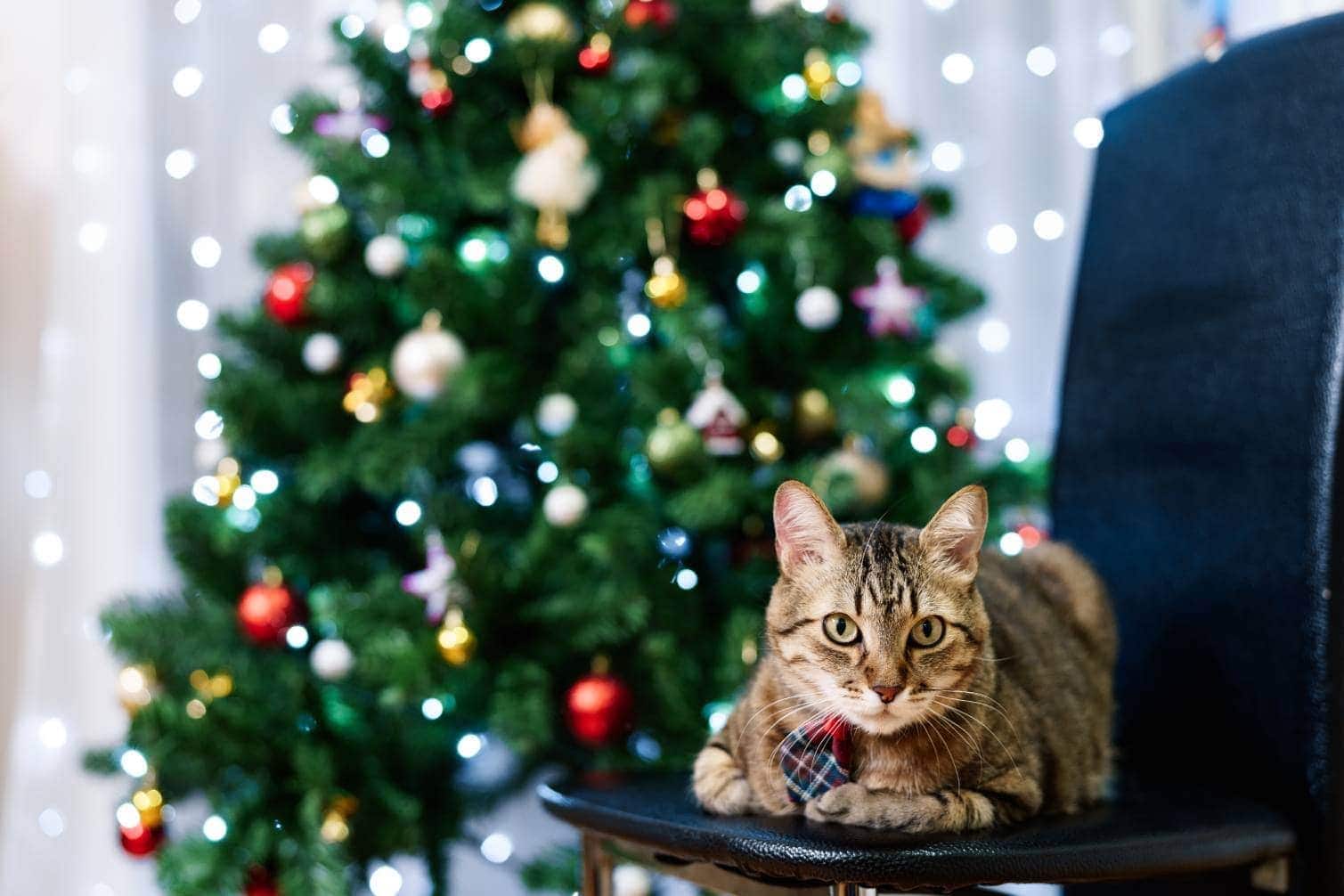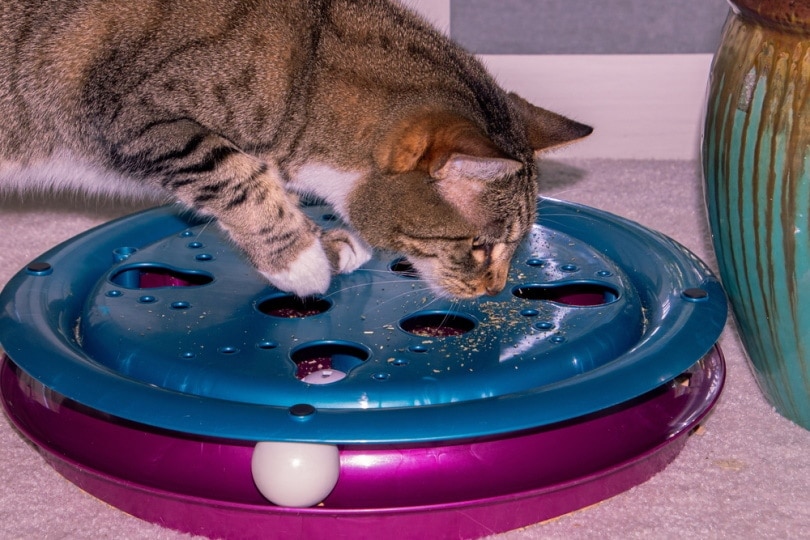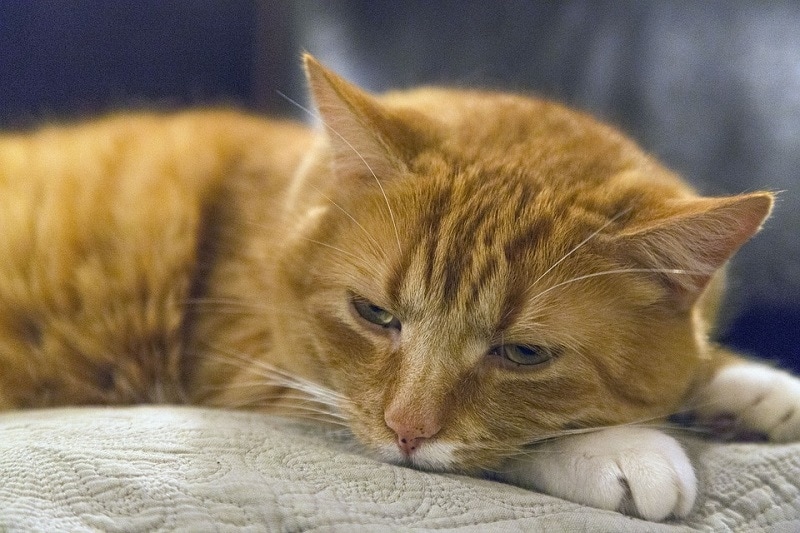Can Cats Eat Corn? Vet-Reviewed Nutritional Facts & Alternatives
By Oliver Jones
Updated on

Eating corn on the cob is a beloved summertime tradition for many of us. While enjoying a fresh ear of corn on a fine summer day, perhaps you’ve noticed your cat hungrily eyeing you and your snack. Dogs may be more well-known for begging but cat owners will tell you that some cats can give them a run for their money. Of course, we know that not all human food is safe or healthy for our animal friends.
Before you decide to let your cat share your corn on the cob, it’s important to be sure it’s safe for them to do so. Can cats eat corn? The answer is yes, cats can eat corn, but only the actual corn kernels when prepared adequately. This, however, does not mean they should, as they will not reap any real benefits from it. Corn cobs and husks can cause more serious digestive issues and should not be given to a cat.
Corn is quite rich in carbs and is not suitable to be a regular part of a cat’s diet. On the other hand, processed corn and corn products are routinely used in commercial cat foods, so it’s quite likely your cat has already eaten corn, just not in the same form as you are used to eating it.
Cats Can Eat Corn, but Is It Good for Them?
Just because corn is safe for cats to eat doesn’t automatically mean it’s healthy for them. While it’s nice to know your cat won’t be in danger from snagging some corn kernels off your plate, you still want to make sure the things they eat are nutritious for them.
Cats are what are known as obligate carnivores, which means their bodies are set up to get all their nutrition from eating meat. They can’t properly digest plant-based food sources to get sufficient nutrients from them.
The main health benefits of corn for humans are the high fiber, which helps with digestion, and B vitamins, which are good for overall health. You may think these could also be beneficial to your cat on a lesser scale, but because corn is a plant, your cat is unlikely to reap the same benefits as a person would.
It’s best to only let your cat have corn in moderation and on rare occasions because too much will make them feel full without providing much nutrition. This can make your cat less likely to eat enough of their actual nutritionally balanced cat food and may give them a stomach upset.
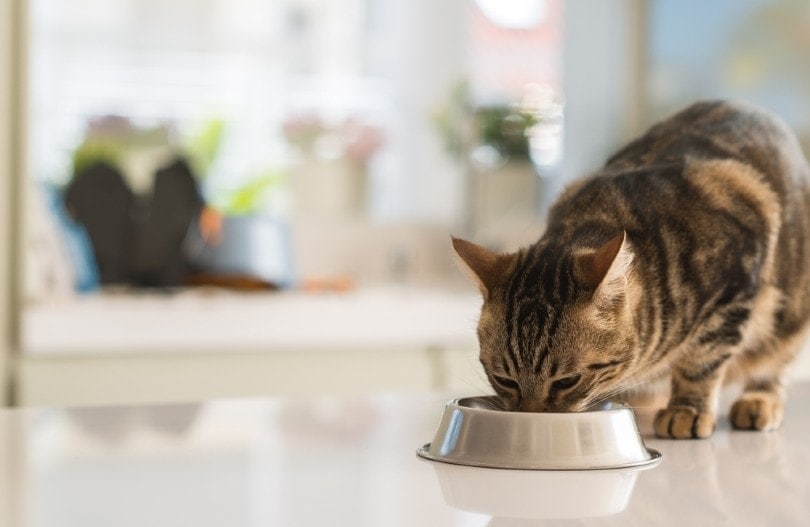
How to Feed Corn to Cats
Corn might not be doing your cat much good nutritionally, but maybe they really love eating it. If you decide to give your cat an occasional corn snack, what’s the best way to feed it to them?
As we already mentioned, only feed your cat corn kernels and make sure they are cooked soft. Boiling is the best way to cook corn for your cat. Avoid using any salt, butter, or oil on the corn you give your cat.
Cats shouldn’t eat any corn-based processed foods like corn chips, tortillas, popcorn, or cornbread. These foods have a lot of fat and other unhealthy additives that are not appropriate or safe for your cat.
Don’t let your cat chew on corn cobs because they can cause digestive issues and your cat could bite off and swallow large chunks that could get lodged in their digestive tract. If the chunks cause an intestinal blockage, your cat could need surgery.
You shouldn’t let your cat eat corn husks either. Many cats enjoy chewing on houseplants and the green, leaf-like corn husks might hold similar appeal. Unlike many houseplants, corn husks aren’t immediately poisonous to cats. However, like corn cobs, corn husks are hard to digest and can cause digestive concerns like vomiting, diarrhea, or intestinal blockage.
- See also: How to keep a cat off the counter?

What Other Foods Are Safe for Cats?
The best diet for your cat is always going to be nutritionally balanced cat food based on animal protein, and that’s what they should primarily eat. If you do want to feed your cat treats, whether they are safe and appropriate human food or commercial cat treats, do so only in moderation. Many cats love to eat and don’t spend much time exercising, so obesity is very common in our feline friends.
Keep in mind that every cat is different and even safe foods could cause an upset stomach in some. Monitor your cat for any issues after eating a new food. With that in mind, here are a few more appropriate foods that are considered safe for cats to eat:
- Cooked meat without bones, additives, or seasonings, such as chicken or beef
- Boiled eggs
- Cooked fish without bones
- Dehydrated or freeze-dried commercial cat treats
- Blueberries
- Strawberries (in moderation)
Dehydrated or freeze-dried meats and fishes like chicken breast or salmon, usually available commercially, are typically the best choices for cat treats.
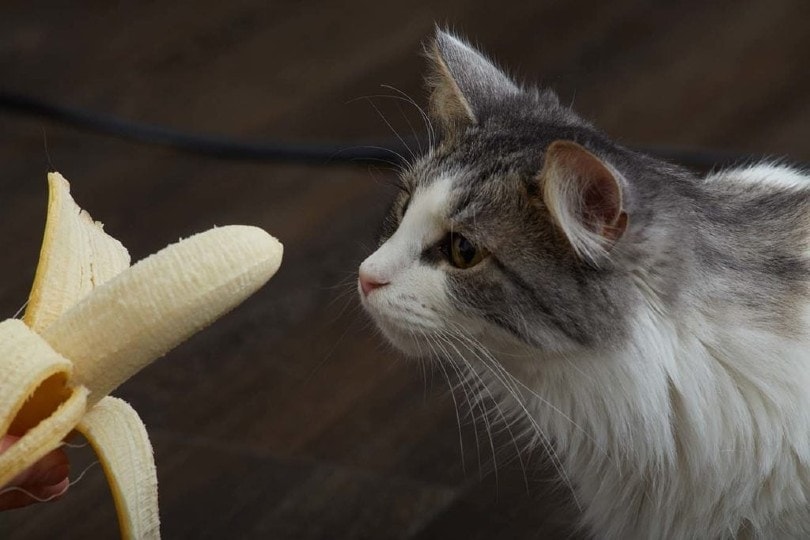
Unsafe Foods for Cats
Several human foods should never be fed to cats. These foods can cause a range of dangerous health concerns and in severe cases could even be fatal. Here are some foods that you should never feed your cat:
- Garlic
- Onions
- Grapes/raisins
- Chocolate
- Raw eggs
- Alcoholic beverages
- Raw bread dough
If your cat eats any of these foods, contact your veterinarian as soon as possible.
- Related Read: Can Cats Eat Popcorn? What You Need to Know!
Conclusion
Cats have a reputation for being picky when it comes to food but that isn’t always the case. Many cats enjoy snacking on a variety of human foods. Always remember to be sure your cat only snacks on safe foods and hopefully the healthiest ones possible and in moderation. Corn isn’t going to do your cat much good in the nutrition department, but it usually won’t make them sick either, unless fed in excess or in case of inappropriate preparation. Always consult with your veterinarian when it comes to safe food and treats for your cat.
Featured Image Credit: kalhh, Pixabay

